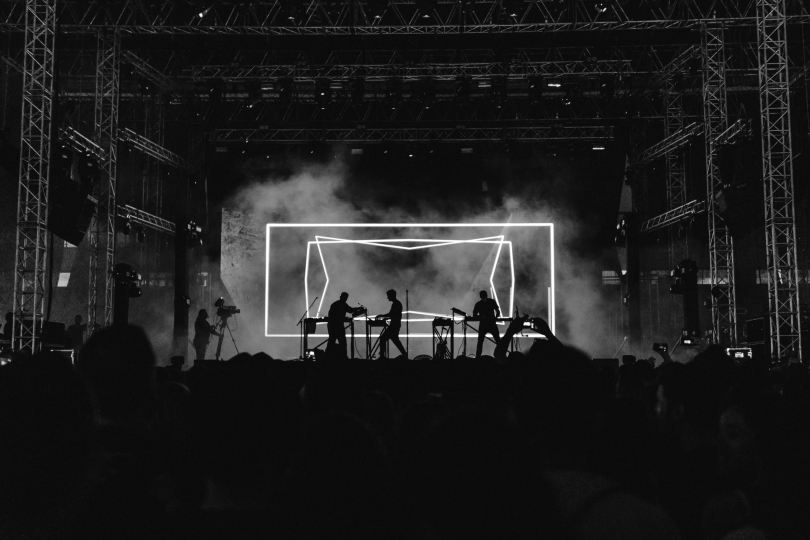
TOP 5 Positive Trends of the Contemporary Music Scene
In the last article we whined a bit about negative trends, so now it's time to change the subject and read a new chapter with a more optimistic attitude. After all, today's era offers unprecedented music-making opportunities and truly phenomenal (and, more importantly, affordable) tools for musical creativity. Let's take a look at the TOP 5 positive trends of the contemporary music scene.
1. Democracy in access to the means of creation
Forgive the slightly political headline, but we really do live in a time that is quite exceptional in this regard. After all, literally for a few pennies you can equip your home studio with high-end equipment and instruments, put everything in your bedroom next to your bed and start producing songs with professional quality standards – until quite recently an idea from sci-fi movies. Even though there have been various devices to record music for quite a few years now, for a long time they have been at the level of demos and only able to produce a raw soundtrack. Now you can skip the demo stage right away and do a full production at home.
If you're handy and have enough time and patience, you can learn everything for free with various videos, self-study manuals and trial-and-error style. Or you can pay for one of the online courses where a top professional in the field will teach you everything you need. In that way, you'll reduce years of practice and thousands of hours spent studying to crash courses lasting just months, because technology has come so far that it already does a lot of things for you automatically, and theuser interface of programs is constantly simplifying.
Of course, talent and years of practice can't be replaced with a magic wand and a bunch of plugins. But I still get giddy with the flood of creative possibilities offered by today's DAWs and technology.
2. Quality vs. price of instruments
Here's where I've seen incredible progress over the last twenty years. From my perspective as a bassist, it's a revolution. Previously, in the economy class of bass guitars, you knew you were buying a "crap" and there wasn't much you could do about it but wait, save patiently, and then sell a kidney to afford a truly pro instrument. Nowadays, it's no problem to get a luxurious-looking, well-made and surprisingly good-sounding bass for around five grand. If you invest a few more crowns in pickups and tuning the instrument, you suddenly have a bass on the level of some boutique brands in your hands.
In the higher price range (say between 600 and 1200 euros) you are already reaching for really beautiful instruments from renowned brands. And if you're willing to pay, say, 2000 euros for a bass guitar, you'll get a truly exclusive instrument of top quality.
It certainly wasn't always like this, and even with expensive instruments you had to choose carefully piece by piece. The economic categories of instruments were tragic and even more expensive compared to today (add to that the general devaluation of the power of money compared to the 90s). Not to mention the huge number of brands, new materials and cutting-edge technology (see the boom of the Dingwall brand with fan fret frets). Davie504, one of the most popular bassists on YouTube, plays only economy models of basses in his videos and no one even thinks to ask why he doesn't have a boutique signature instrument. In short, in terms of choice, price and quality, we live in a musician heaven. And it's not just bass guitars, but also guitars, drums, keyboards and other popular music instruments.
3. Music distribution
If you don't expect to live off royalties and just want to have your albums on Spotify or other streaming platforms, there's nothing easier. For a few pennies, you can send your beloved tracks all over the world. It's a bit of work (you have to have the right format for the cover art, the right audio specs, know how to set up your profile on the distribution platform, additional digital admin, and so on), but after a few singles released, you become a publishing pro and can churn out one album after another.
If you enjoy making and editing videos, it's no problem to release content on YouTube, TikTok or other X platforms where potential listeners or viewers are waiting for you. Again, this is a totally revolutionary thing for new-age musicians to enjoy. You can create and distribute as easily as you make scrambled eggs in the morning.
4. Celebrities within reach
Now I'm not just referring to the global superstars from magazine covers and TV shows. I'm also referring to your local idols, musicians and role models. Almost all of them now have some kind of social media profile and are very often active in direct communication with their fans. Bands hold various meet-and-greets before and after shows (to help them get by during financially draining tours). You can take a workshop (often free) with your favourite virtuoso musician or book a course, lesson or a weekend together in a luxury spa hotel.
Celebrities are there for you, the fans, like never before in history. They are within reach because they need you. You're their livelihood, you're helping them live their dream and they know it all too well. Forget about the age of secrecy, of unavailability, of rarely granted interviews. Today, the spotlight is always and everywhere being fought for. Take advantage of this and meet your heroes – whether online or in the real world.
5. DIY dream
If you're a musician who craves information but has to dig deep into your pocket or have an aversion to academia, you can get a complete education in the online world. Whether you want to learn the ukulele or become a professional producer, YouTube and its myriad discussion forums (focused on specific, very specific topics) are there for you as an endless well of inspiration and wisdom. Sometimes you have to wade through nonsense or misleading sources of information, but that's part of the adventure of the internet.
If you supplement everything with good old-fashioned printed literature, you can become more of an expert in the field than some of the titled and award-winning old stagers. In the music business, it's also an advantage to be unorthodox in the ways you use not only technology but also your instrument or voice. For example, Skrillex invented his version of dubstep on a laptop in a van back when he was still the frontman of a classic rock band.
If you have found an error or typo in the article, please let us know by e-mail info@insounder.org.





